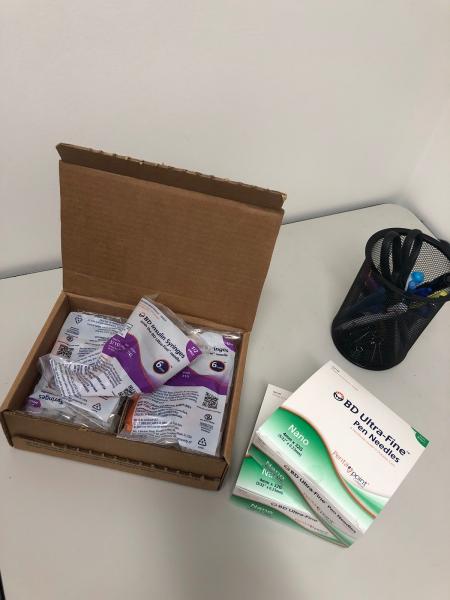The Many Barriers to Health Care by Catherine Romaine
It was my first week serving at Health Center 10, an overflowing clinic that provides medical, dental, and behavioral health services for the large and diverse population of Northeast Philadelphia. I heard Sally, a National Health Corps member from the previous cohort who had been helping out throughout the summer months, conversing with a patient behind me. Not until I heard the patient shout, “I need my insulin!” did I stop unpacking medicines and look up. In front of me stood Muhammad*, a balding, middle-aged, and uninsured Bangladeshi patient with uncontrolled diabetes who had just found out that his application to receive free insulin would likely be denied for a second time.
 As a patient advocate, I help patients who have limited or no health insurance enroll in programs offered by pharmaceutical companies to receive much-needed prescription medications for free or reduced cost. Some of these programs require patients to submit a Medicaid Denial Letter (MDL) with their application to prove that despite their low income, they still do not qualify for Medicaid. This was the case with Muhammad, except he was facing another setback. After bringing in his MDL, Sally had told him that there was a mistake – the letter did not list his name, only his wife and children. After printing out Google Maps walking directions and writing down clear instructions, I advised Muhammad to go to the nearest County Assistance Office to get a new MDL.
As a patient advocate, I help patients who have limited or no health insurance enroll in programs offered by pharmaceutical companies to receive much-needed prescription medications for free or reduced cost. Some of these programs require patients to submit a Medicaid Denial Letter (MDL) with their application to prove that despite their low income, they still do not qualify for Medicaid. This was the case with Muhammad, except he was facing another setback. After bringing in his MDL, Sally had told him that there was a mistake – the letter did not list his name, only his wife and children. After printing out Google Maps walking directions and writing down clear instructions, I advised Muhammad to go to the nearest County Assistance Office to get a new MDL.
A week later, I was eating lunch in the break room when a coworker told me that a patient was here to see me. I walked into my office to find Muhammad, with a paper in his hand and a huge smile across his face. “Sorry to bother you,” he said with a thick Bengali accent, “but I got one with my name on it!”
From when his application was first sent, it took months for Muhammad to receive insulin. This lengthy process opened my eyes to the many different obstacles (linguistic, political, and procedural) that patients must hurdle in order to receive quality health care. Learning from my experience with Muhammad, I hope that throughout this service term I am able to help guide my patients around these many barriers.
*patient name changed to protect privacy